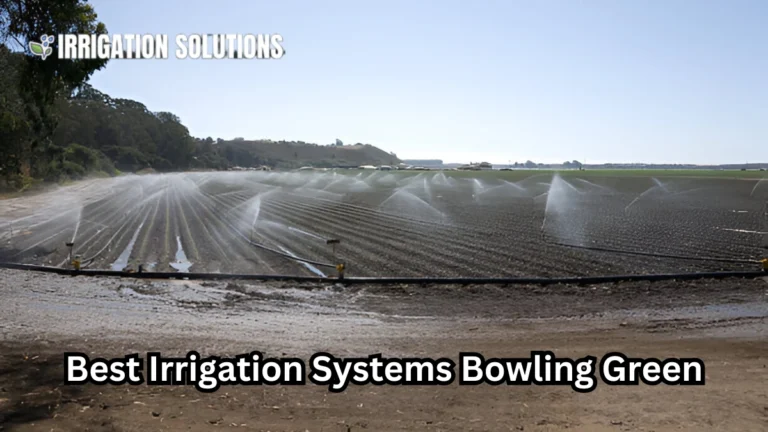what are the uses of surgical irrigation solutions

what are the uses of surgical irrigation solutions play a pivotal role in modern medicine, especially in surgical procedures. They are essential in maintaining a sterile environment, flushing out debris, and aiding in tissue healing. Whether it’s a minor wound, a complex orthopedic surgery, or an abdominal procedure, these solutions are indispensable in promoting patient recovery and improving outcomes. In this blog post, we’ll dive deep into the various uses of surgical irrigation solutions, their benefits, types, and how they contribute to the success of surgical procedures.
what are the uses of surgical irrigation solutions?
Surgical irrigation solutions, also known as sterile irrigation fluids, are liquids used during surgeries to cleanse and irrigate the surgical area. Their primary function is to maintain a clean and sterile field by removing debris, blood, and other materials from the site. These solutions are often used to irrigate open wounds, wash out body cavities, and prevent infection during and after surgeries. They are designed to be safe for the body and typically have a balanced pH to match human tissues.
The irrigation fluid is administered directly into the wound or surgical site through sterile techniques, ensuring the area remains free from contaminants. Different types of solutions are used for different surgical needs, each tailored for specific procedures and patient conditions.
Why the what are the uses of surgical irrigation solutions?
Maintaining Sterility
The main purpose of surgical irrigation solutions is to maintain the sterility of the surgical site. During a surgery, bacteria, debris, and blood can contaminate the area, which can increase the risk of infection and complications. Irrigating the area with sterile solutions helps wash away these contaminants and creates an optimal environment for healing.
Reducing Infection Risk
Infection is one of the most significant risks after surgery. Surgical irrigation solutions help reduce this risk by keeping the surgical area clean and free of harmful microorganisms. By washing away bacterial contamination during the procedure, these solutions help lower the chances of postoperative infections that could slow recovery or require further interventions.
Promoting Healing
Surgical irrigation solutions can also help promote faster healing by providing a clean environment for tissue regeneration. The solutions can assist in reducing the buildup of dead tissue, which could otherwise impede the healing process. Additionally, certain types of irrigation fluids contain antimicrobial agents that support tissue repair and fight off potential infections.
Types of Surgical Irrigation Solutions
There are several types of irrigation solutions, each serving a distinct purpose. Here are the most commonly used solutions in surgical procedures:
Normal Saline (0.9% Sodium Chloride Solution)
Normal saline is one of the most widely used surgical irrigation solutions. It’s a simple solution composed of sodium chloride (salt) dissolved in water. With a pH close to that of human blood, it is an ideal choice for cleaning and flushing wounds.
Uses:
- Rinsing wounds or body cavities
- Lavaging surgical sites during and after procedures
- Irrigating catheters or drains
Ringer’s Solution
Ringer’s solution contains sodium chloride, potassium chloride, and calcium chloride dissolved in water. This solution closely mimics the body’s electrolyte composition, making it suitable for maintaining fluid balance during surgery.
Uses:
- Replenishing lost fluids during surgery
- Providing electrolytes for patients in need of fluid resuscitation
Lactated Ringer’s Solution
Lactated Ringer’s solution is similar to Ringer’s solution but contains lactate, which acts as a buffer to help maintain the body’s acid base balance. It’s commonly used in surgeries where the risk of acidosis is high.
Uses:
- Rehydrating patients during surgery
- Preventing acidosis in critically ill patients
- Irrigating surgical wounds
Antiseptic Irrigation Solutions
Some surgical irrigation solutions are designed with added antimicrobial or antiseptic agents, such as iodine or chlorhexidine, to reduce the risk of infection. These solutions help kill bacteria, fungi, and viruses in the surgical area.
Uses:
- Preventing infection in high risk surgeries
- Cleaning infected wounds
- Preparing the surgical site for surgery
Antibiotic Containing Solutions
Certain surgical irrigation solutions are pre-mixed with antibiotics to provide localized treatment to the surgical site. These solutions are particularly useful in high-risk surgeries or for patients with a history of infections.
Uses:
- Treating infected surgical sites
- Providing local antibiotic delivery during surgery
- Reducing the need for systemic antibiotics
Key Benefits of Surgical Irrigation Solutions
1. Minimizing Infection Risk
Infections are a significant concern in surgical procedures, especially in invasive surgeries like orthopedic, cardiac, or abdominal surgeries. Surgical irrigation solutions help remove debris, bacteria, and dead tissue from the surgical area, minimizing the chances of infection.
2. Enhanced Visualization
During surgery, clear visualization is crucial for surgeons to perform delicate procedures. Irrigation solutions help wash away blood, debris, and other materials, giving surgeons a clearer view of the surgical site. This clarity reduces the chances of errors and ensures a more precise procedure.
3. Reducing Inflammation
By keeping the surgical area clean, surgical irrigation solutions can help reduce inflammation and swelling. Some solutions, such as lactated Ringer’s, can help balance electrolytes, preventing further irritation to the tissues and promoting faster healing.
4. Supporting Healing and Tissue Regeneration
Clean wounds and surgical sites heal faster. By flushing out toxins and encouraging a sterile environment, irrigation solutions provide an ideal setting for tissues to regenerate and recover.
Common Surgical Procedures Where Irrigation Solutions Are Used
Orthopedic Surgery
In orthopedic surgeries like joint replacements or bone fracture repairs, surgical irrigation solutions are used to clean the area before, during, and after surgery. They help clear debris from the bone or joint space, reducing the risk of infection and promoting faster healing.
Case Study: In a study involving 200 patients undergoing total knee replacement surgery, the use of normal saline irrigation was shown to significantly reduce postoperative infection rates and promote faster recovery compared to those who received no irrigation.
Abdominal Surgery
During abdominal surgeries, such as appendectomies or bowel resections, surgical irrigation solutions are vital for cleaning the abdominal cavity. They help flush out blood, debris, and waste material, preventing postoperative complications like peritonitis.
Cardiovascular Surgery
Cardiac surgeries, especially open heart procedures, often involve the use of irrigation solutions to clean the heart and surrounding tissues. This helps reduce infection risk and ensure proper tissue healing after surgery.
Plastic and Reconstructive Surgery
Irrigation solutions play a crucial role in plastic surgery, including wound debridement, skin grafting, and breast reconstruction. The sterile fluids remove dead tissue and bacteria, ensuring the best possible results for patients.
How Surgical Irrigation Solutions Are Administered
Sterile Techniques
During surgery, the irrigation solution is introduced into the surgical area using sterile techniques. This prevents contamination and ensures the solution doesn’t introduce harmful bacteria into the wound.
Volume and Pressure
The volume and pressure of the irrigation solution vary depending on the procedure. In some cases, a small amount of fluid is used with low pressure, while in others, larger amounts are required to flush out contaminants.
Continuous vs. Intermittent Irrigation
Irrigation can be continuous, where fluid is continuously introduced into the surgical area, or intermittent, where the fluid is introduced in short bursts. The choice depends on the procedure and surgeon preference.
Safety and Considerations
While surgical irrigation solutions are essential, there are some considerations to keep in mind:
- Solution Compatibility: It’s crucial to choose the right irrigation solution for each procedure. Using the wrong solution can cause complications, such as electrolyte imbalances.
- Patient Conditions: Some patients may have allergies or sensitivities to specific solutions. It’s important to monitor patients for any signs of adverse reactions.
- Volume Control: Overuse of irrigation solutions can lead to fluid overload, especially in patients with heart or kidney conditions. Careful volume control is essential.
Conclusion
Surgical irrigation solutions are indispensable tools in modern surgery. They not only help maintain a sterile surgical field but also play a significant role in reducing infection risks, promoting healing, and improving surgical outcomes. Whether in orthopedic, abdominal, or cardiovascular surgeries, these solutions are tailored to specific needs, ensuring each patient receives the best care possible. As medical technology advances, we can expect further innovations in surgical irrigation that will continue to improve patient recovery and overall surgical success.
If you’re involved in surgical practice or have had surgery, understanding the importance of these solutions will help you appreciate the meticulous care that goes into ensuring a safe and successful procedure.






